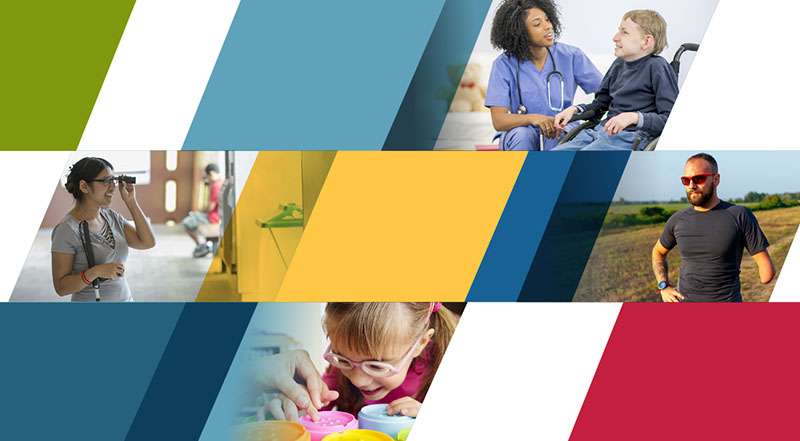
Recently, NIH designated people with disabilities as a population with health disparities. This designation formally recognizes the importance of research advances to better understand the disparate health outcomes experienced by people with disabilities and to develop strategies to reduce these disparities. I am proud of NIH’s leadership role within the Department of Health and Human Services in addressing these issues and pleased by positive reactions from the community.
One major contributor to the health disparities experienced by people with disabilities is ableism—discrimination and social prejudice against those who are disabled. Ableism may be reflected in the health care environment, such as inaccessible medical facilities and equipment, and in behaviors, such as the failure of a health care provider to discuss reproductive health issues based on assumptions about a person’s ability to conceive.
Ableism is pervasive in scientific research, too. Some researchers view disability as a problem to be fixed rather than a demographic characteristic. Ableism also influences the composition of the scientific workforce, what research questions are asked, who participates in research, and how generalizable and useful research findings are.
People with disabilities are underrepresented as leaders and members of research teams and as clinical research participants. At NIH, we are working to foster their inclusion to help ensure that study designs reflect the needs and desires of people with disabilities. For example, the NIH-wide INvestigation of Co-occurring conditions across the Lifespan to Understand Down syndromE (INCLUDE) project, which NICHD co-leads, has made strides in increasing the participation of people with Down syndrome and their families in clinical research.
Within NIH, NICHD has been at the forefront of efforts to understand and address ableism. NICHD-supported research has found that some physicians are not welcoming of people with disabilities and feel unprepared to provide their care. Furthermore, more than a third of U.S. physicians do not know their legal requirements under the Americans with Disabilities Act, the federal law that prohibits discrimination against individuals with disabilities. Without proper accommodations, patients with disabilities may receive substandard care.
In April 2023, NICHD’s National Center for Medical Rehabilitation Research hosted a two-day workshop on Ableism in Medicine and Clinical Research that identified research gaps and opportunities to understand and mitigate the health impacts of ableism for disabled people. We now are seeking applications for research to understand and mitigate the health disparities caused by ableism. Another open NIH funding opportunity seeks proposals for research to examine the multiple intersectional factors that negatively affect the health and wellbeing of people with disabilities.
NICHD works to develop the scientific knowledge needed to enhance the health, productivity, independence, and quality of life of people with disabilities. One focus is promoting healthy pregnancies among disabled people. Pregnant women with disabilities have a much higher risk of severe pregnancy- and birth-related complications and death, compared to pregnant women without a disability. They also have about two-and-a-half-times greater risk of experiencing intimate partner violence in the year before pregnancy and during pregnancy.
Current NICHD-funded research projects are exploring pregnancy outcomes and experiences among women who are deaf or hard of hearing and ways to enhance reproductive decision-making support for women with developmental disabilities that affect cognition. Efforts are also underway to leverage national- and state-level data to study the prevalence and outcomes of pregnancy in women with disabilities. Additionally, NICHD funds the collection of information from pregnant women with disabilities through CDC’s Pregnancy Risk Assessment Monitoring System (PRAMS). Recently released 2021 data from PRAMS highlight the heightened challenges experienced by pregnant women with disabilities during the COVID-19 pandemic.
These studies illustrate some of the ways in which NICHD is advancing toward its vision of “Healthy pregnancies. Healthy children. Healthy and optimal lives.” At the broader NIH level, efforts are underway to update the agency’s mission statement to better reflect its current and future vision for promoting the health of people with disabilities. Please consider reviewing the proposed new mission statement and offering your comments and suggestions by November 24.
 BACK TO TOP
BACK TO TOP